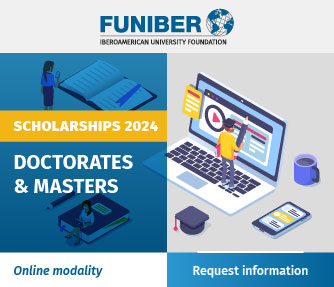MLS Health and Nutrition Research
ISSN: 2952-2471
The MLS Health and Nutrition Research journal was created as a biannual publication with the aim of publishing original research and review articles in basic, applied, and methodological areas that contribute to the progress of any field of health and nutrition as its main objective. The articles included in this journal are published in Spanish, Portuguese and English. The international scope of this journal promotes the dissemination of knowledge in its different areas.
In this page, you will be able to access the tables of contents for all issues of the MLS Health and Nutrition Research journal, article abstracts and complete articles. In the "About" section you will also find all the information about our journal, its editorial team, publication system, and online submissions.
Interactivity with readers and authors
The journal keeps readers informed every time a new issue is published or a press version is available. Likewise, authors are informed in real time of the status of the manuscript submitted for review and, likewise, they are informed when the manuscript is accepted and published.
Once the article has been published, the author will be able to download from his/her registered user space, in the left-hand sidebar, the certificate accrediting the publication, by filling in the fields requested.
Latest articles
Accepted articles
Mothers' nutritional knowledge plays a critical role in the fight against childhood malnutrition, particularly regarding infant feeding practices. Inadequate knowledge is linked to high neonatal mortality rates. Conversely, mothers with better knowledge can contribute to improved feeding practices, potentially reducing the prevalence of this disease and its negative consequences. This study aimed to assess the level of nutritional knowledge among mothers participating in the Cabinda Integrated Project. Employing a cross-sectional quantitative design, the study enrolled 372 mothers of children under five during a four-month period (January-April 2023). A probability sampling technique with a Raosoft sample size calculator ensured representativeness. Data collection utilized two questionnaires: the Sociodemographic Variables Questionnaire and the Questionnaire for Evaluating Parents' Knowledge on Infant Complementary Feeding. Chi-square tests (p < 0.05) analyzed relationships between variables. Analysis revealed that a majority (51.34%) of mothers demonstrated adequate nutritional knowledge. Interestingly, a statistically significant disparity emerged between income, area of residence, and knowledge. Mothers from lower socioeconomic backgrounds displayed higher knowledge (60.87%) compared to those with income (p = 0.0001). Similarly, mothers in rural areas (75.80%) exhibited superior knowledge compared to urban counterparts (33.49%) (p = 0.000). Notably, no significant association was found between nutritional knowledge and educational attainment or age. The study concludes that nearly half of the mothers possess adequate nutritional knowledge. However, income and area of residence appear to have a stronger influence than education or age. This suggests that solely focusing on education and age may be insufficient to improve mothers' nutritional knowledge.












